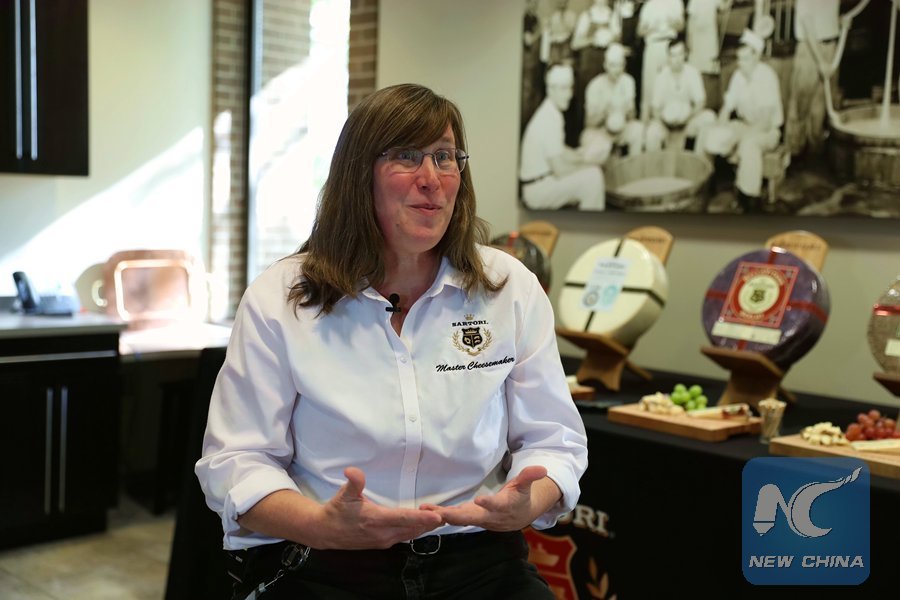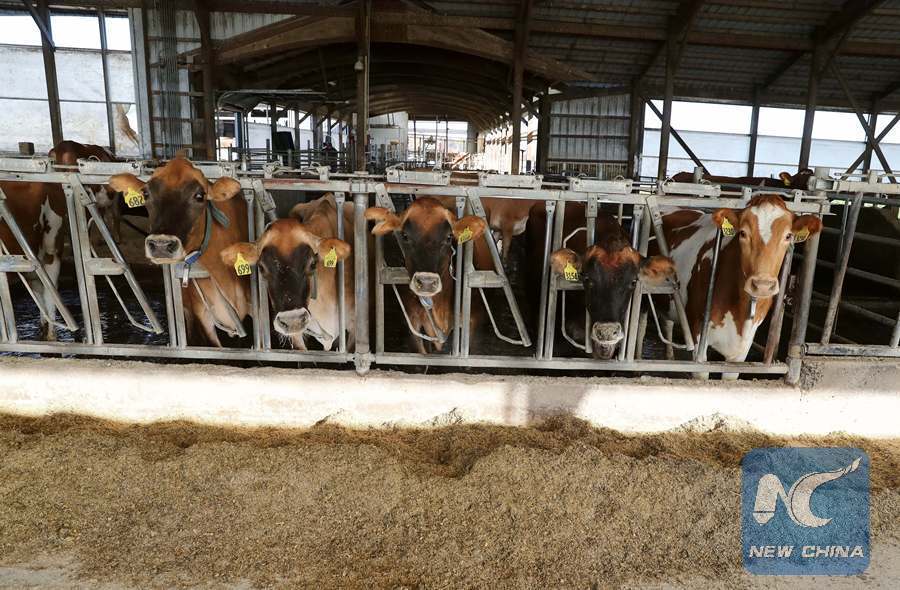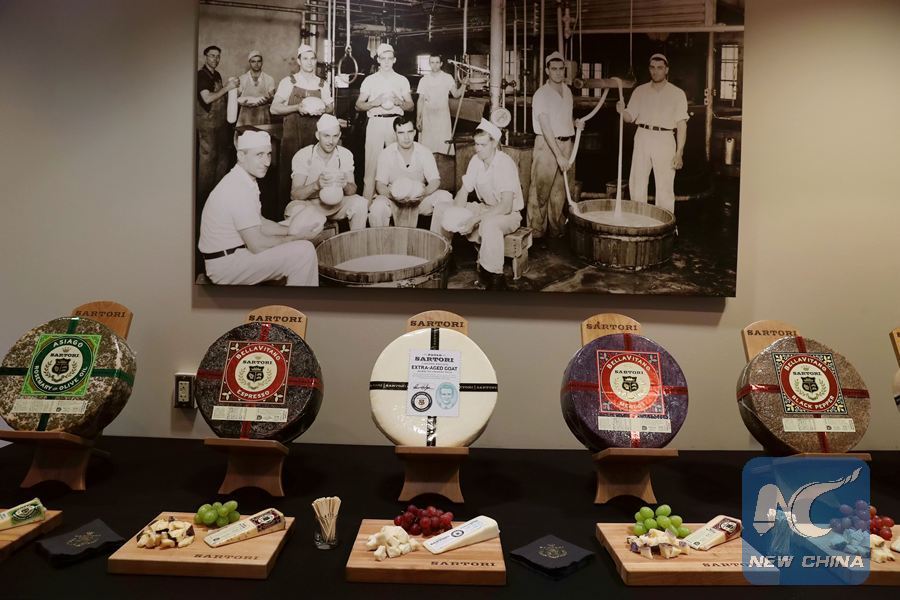
56-year-old cheesemaker Pam Hodgson receives an interview with Xinhua in Wisconsin, the United States, on Oct. 24, 2018. (Xinhua/Wang Ping)
by Xu Jing, Xia Lin, Miao Zhuang
CHICAGO, Nov. 17 (Xinhua) -- "We want to make the best cheese in the world and we want to have cheese on every plate," said 56-year-old Pam Hodgson, a master cheesemaker with Sartori Cheese, in an interview with Xinhua.
There are only two female master cheesemakers on the 58-person list certified in the U.S. state of Wisconsin, and Hodgson is one of them. "It's been my lifetime." "My maternal grandfather was a world cheesemaker and our daughter is a cheesemaker as well right now in Wisconsin."
Growing up on her family's dairy farm in Darien, Wisconsin, "My career goal when I was a child was to be a dairy farmer, like my parents, and that took me to the University of Wisconsin (UW) in Madison," Hodgson told Xinhua.
After out of the college, Hodgson worked on the farm side of the dairy industry and eventually moved to the manufacturing.
Hodgson started her cheese-making career in a cheese plant in 1991. "I didn't know I would like cheese making. And then once I got into the plant I just thrived. It was a very good fit for me to become a master cheesemaker."
In Hodgson's eyes, to be a master cheesemaker reflects a long-term commitment to making cheese. "It's a minimum of a 15 year process." One needs to become a licensed cheesemaker first, which takes two years, then keeps making cheese for at least 10 years before he or she can apply to the Wisconsin Master Cheesemaker program. After being selected to the program, there is a three-year apprenticeship. And at the end of the process, there's an extensive exam.

Photo taken on Oct. 24, 2018 shows a dairy farm in Madison, capital of state of Wisconsin, the United States. (Xinhua/Wang Ping)
Wisconsin, America's dairyland, is the only state in the United States that requires its cheesemakers to be licensed in order to craft cheese for retail consumption. There are about 1,200 licensed cheesemakers making over 600 varieties, types, and styles of cheese in the state at present.
As a master cheesemakers, Hodgson especially highlights quality of milk. "All of our milk is locally sourced within 75 miles of our dairy plant. That's very important."
Craft is another thing Hodgson stressed. "At Sartori, our cheeses are handcrafted and also hand finished." "We might hand finish by rubbing a wheel of cheese with crushed black pepper."
Hodgson admitted that cheese making has changed a lot in 80 years, and people are interested in experiencing more flavors, different varieties of cheese. As a master cheesemaker, "I find that to be fabulous because it gives me permission to try different things and create new flavors."

Photo taken on Oct. 24, 2018 shows cheese products displayed at Sartori Company in Plymouth, Wisconsin, the United States. (Xinhua/Wang Ping)
Hodgson and her company are cooperating with the Center for Dairy Research in UW in Madison to test experimental cheeses in small batches in the latter's pilot lab. "We want to try out on a small scale before bring them back into our plant and make bigger batches."
"I just want to keep creating new types of cheese," Hodgson added. "I believe through innovation we have new flavors and styles of cheese yet to be discovered."
"The thing with cheese making is it's a life's work, there are always challenges, there's always something new to experiment with and try to make better. It's a holistic, challenging career. It's really a calling."
Hearing Sartori cheese is now being sold in the Chinese market, Hodgson was excited: "I sincerely hope that the Chinese consumers try our cheeses and I hope they find them delightful. We have a variety of cases for them to explore."

